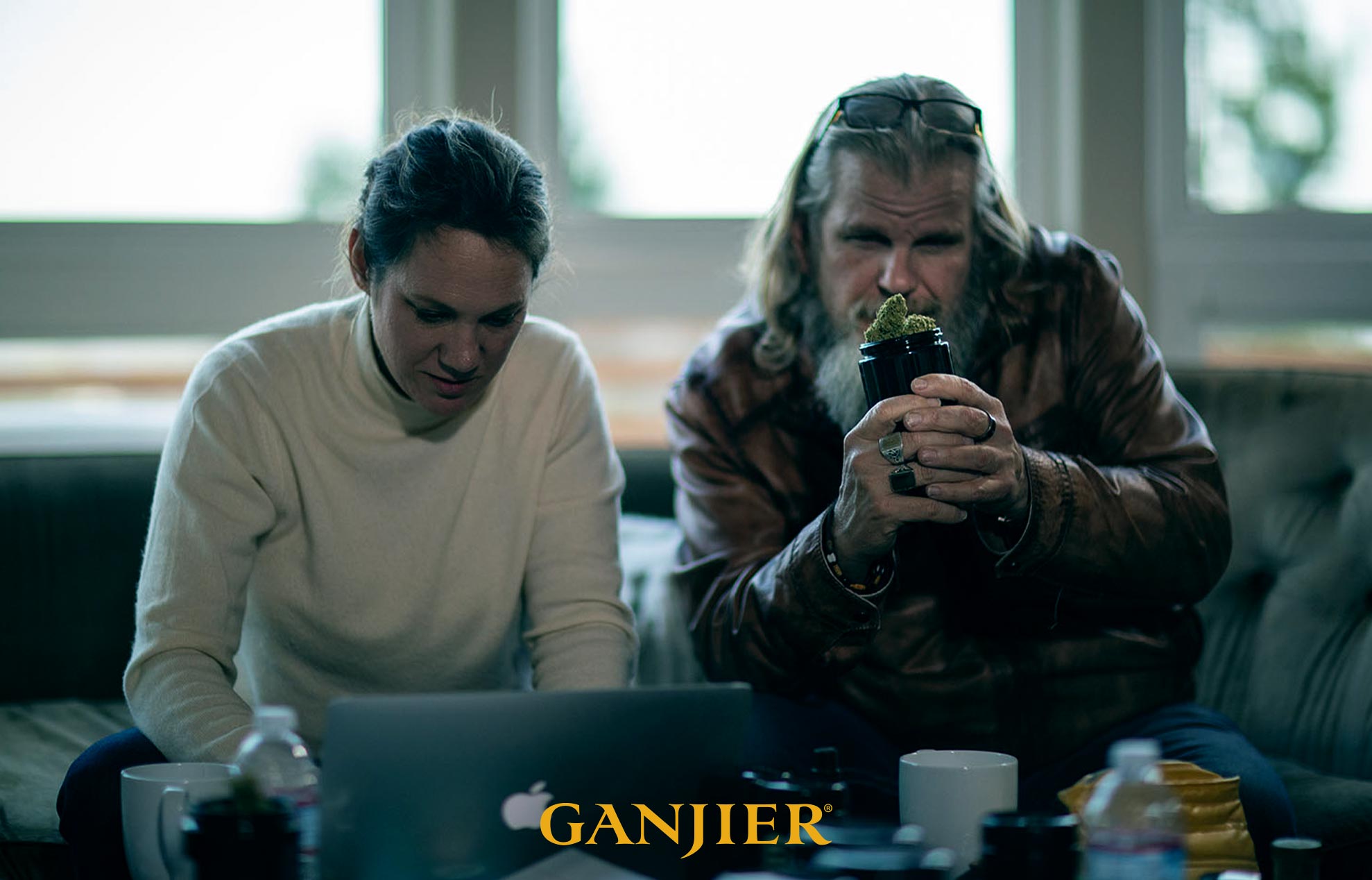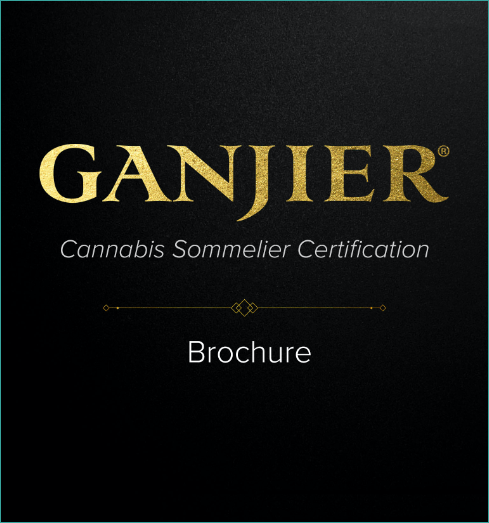From illegal to essential, cannabis has come a long way – but it didn’t happen overnight.
For centuries, everyone from artisans and healers, to Viking warriors and Amazonian tribesmen, have explored and unlocked the power and potential of the cannabis plant.
Today, as cannabis merges rapidly into the mainstream, it’s time to establish a new class of cannabis professional – the Ganjier cannabis sommelier – one who is trained and certified to assess the true quality of cannabis flower and concentrates, and provide exceptional service to consumers.
The cannabis marketplace is filled with an increasingly diverse array of new products and applications. While consumers eagerly explore more natural ways to enhance their lives and seek to elevate and refine their cannabis enjoyment, the demand for those with deeper, more comprehensive knowledge of the plant, its nuances, innate qualities – and possibilities – is becoming paramount.
Analogous to the wine sommelier or chocolatier, the Ganjier cannabis sommelier is schooled in intricacies like terroir, taste, terpenes, and finish – serving as a conduit between cannabis and consumer, navigating its complexities and optimizing user experience.
If you look at other industries such as wine, beer, chocolate, coffee, or cigars – you’ll find fully developed, multi-disciplined programs preparing the professional to assess quality from every possible angle and, equally important, to guide user experience. This type of standardized knowledge and guidance is sorely needed in cannabis, applicable to every level of the supply chain.
In developing the Ganjier Certification, it was important to understand the current frameworks that make up these other sommelier programs – programs that have become the heart of quality and service for their specific industry.
“The Ganjier Council spent a lot of time researching the current frameworks that exist in wine, beer, and tobacco sommelier programs. And when we got into the flavor profiles, we even looked to chocolate,” explains Max Simon, CEO of Green Flower, which oversees the development of Ganjier business. “We took those frameworks in and worked to figure out which ones should be applied to cannabis because of the unique nature of the cannabis plant.”
Derek Gilman, Managing Director of the Ganjier, emphasizes the foundational approach in studying what these other major sommelier programs had developed. “We looked at every similar type of industry that has a professional that guides clients, and we looked at how they were doing it, what they were doing, and developed our program around those best practices,” he says.
Bringing Together The Best Cannabis Minds On The Planet
Developing the Ganjier would require tapping into a deep well of legacy cannabis knowledge and experience – the underlying criteria in forming the Ganjier Council.
The Ganjier Council includes 18 of the world’s most respected cannabis experts covering every aspect of the plant and industry, such as:
- Cultivation
- Distribution
- Genetics
- Product formulation
- Retail
- Advocacy
- Science
- Extraction
- Laboratory testing
- Cannabis law
“It’s an extremely well-rounded group of people that collectively have the greatest level of cannabis experience on planet Earth,” Simon notes.
What makes this group particularly special is that while there is a great deal of people with a lot of legacy cannabis experience that have just stayed underground – this group of people didn’t, Simon continues.
“These people realized in each step along the way, whether it was California’s Prop 215 or other initiatives, that cannabis was going to continue to go down this legalized pathway. And because of their legacy, experience, and determination they kept going. And so all these people aren’t just legacy cannabis people, they’re people that are participating and succeeding in today’s modern legalized cannabis economy. There’s not a lot of folks who match that criteria.”
Kevin Jodrey, one of the world’s most respected cultivators and the original creator of the Ganjier concept, joined the Council as a way to share with the world everything he’s learned about cannabis over the decades.
“When you spend your entire life involved in a craft, the ability to share that information to further the longevity of the craft and develop new participants in the craft is crucial. And to be part of the Ganjier Council allows me to take the information I’ve spent a lifetime acquiring and share it with others in a way that will be accessible and transferable,” Jodrey notes, emphasizing the importance of providing legacy education and knowledge for new generations of cannabis professionals.
“Cannabis appreciation is so much a part of the culture – and the ability to understand what makes good cannabis is a crucial component to developing an industry and maintaining the cultural connections that have tied us all together for centuries.”
Together, the Council contributed more than 8,000 hours to the development of Ganjier over the past two years, shaping and teaching the courses throughout the certification pathway and developing the new Systematic Assessment Protocol™ for cannabis.
Developing The Systematic Assessment Protocol™
One of the greatest focuses in developing the Ganjier has been creating the Systematic Assessment Protocol® (The SAP), an extremely detailed, state-of-the-art tool for systematically assessing the true quality of cannabis flower and concentrates.
“We realized that in order to equip the student with the ability to properly assess cannabis, we had to come up with the proper tools,” Simon explains. “What does quality in cannabis actually mean? What are those standards that determine quality cannabis?”
According to Simon, developing The SAP has required a greater time commitment than any other aspect of establishing the Ganjier: “The development of The SAP is grounded in extensive research into the assessment methodology employed and validated by quality assessment experts and connoisseurs across each of several fields,” he says.
“Select criteria denoting the qualitative aspects of cigars, wine, and chocolate were adapted and modified to create a tool specifically tailored to determine the most accurate depiction of cannabis quality – nuances that have never been fully articulated before.”
Shaping The Ganjier Certification Pathway
The Ganjier Certification Program includes three different levels, the first of which is Certified Ganjier (CG).
CG is the foundational level of Ganjier training with a focus “on the accurate assessment of cannabis quality, artfully executed service, and the business of successful cannabis sales.”
After two years of development and Council contributions, the Certified Ganjier curriculum consists of 11 specifically tailored online courses.
These courses cover everything from cannabis service and assessment, to history and science, to cultivation and genetics, and even include a section that explores the world of cannabis connoisseurship. Each course is designed and taught in robust detail by members of the Ganjier Council.
In addition to the online training, the CG certification pathway also includes in-person training on the assessment methodologies, palate refining, as well as coaching on how to utilize The SAP. The Live Training also focuses on service, including role play exercises to reinforce the principles of the Consumer Interaction Protocol™ (CIP).
And for the final phase of becoming a Certified Ganjier, you’ll take a three-part exam, which includes a service exam covering the Consumer Interaction Protocol™, an assessment exam covering use of The SAP, and a knowledge exam based on the curriculum.
Once you have successfully completed these steps, you will be awarded the prestigious Certified Ganjier designation (CG).
Ganjier: A Commitment To Standards In Quality And Service
There are so many ways that The Ganjier will impact the cannabis industry:
- Be a trusted guide for cannabis consumers
- Perform critical discernment of cannabis quality
- Inform retail buyers of what to expect
- Curate individual selection menus for dispensaries and purveyors
- Educate dispensary managers, staff, and budtenders
- Establish and maintain a trusted rapport and be a liaison between cultivator and seller from farm to flame
- Develop lexicon to communicate standards, values, and quality more effectively and consistently across all industry sectors from consumers to producers
- Create the setting/environment to enhance experience
- Raise the standard of excellence and consistency in cannabis quality
- Elevate the credibility of cannabis enterprise by having a credentialed professional on staff
“How many Ganjiers any one particular brand has on staff will be a reflection of their commitment to high customer service standards,” Gilman says, emphasizing the value added at every level of the supply chain.
“The comparison to a sommelier is apt, but it’s not complete”, says Swami Chaitanya, founder at Swami Select, and part of the founding Ganjier Council.
“With a Ganjier, you have someone to guide the consumer, which is important because there are so many things to choose from – how can you possibly come to a real decision without some expert advice?” Swami notes, adding the Ganjier is also there to better guide and evaluate the purchasing decisions of retail stores.
“There is a need for expertise and standardized evaluation in order to have people agree on things. They have it for coffee, for wine, and for other things, and so as we move into a regulated legal market, into the mainstream, people need to know how to make informed choices,” Swami says.
“Just look at the whole CBD market. There’s so much fakery and foolery in the CBD market. You buy a CBD product and there’s actually no CBD in it. With the Ganjier, you have an expert to help you evaluate and navigate those decisions.”
In other words, having a Ganjier on staff, for any cannabis business, will be an immediate indicator of your dedication to quality.
“Just think about the wine sector. If there is a sommelier at a restaurant, for instance, you can guarantee that’s being advertised and talked about,” Simon says. “You put a Ganjier in your retail staff, in your cultivation facility, on your brand development team, or anywhere else – it’s going to mean something in this industry.”
Join the interest list if you want to be among the first Ganjiers to transform the cannabis industry as we know it.


